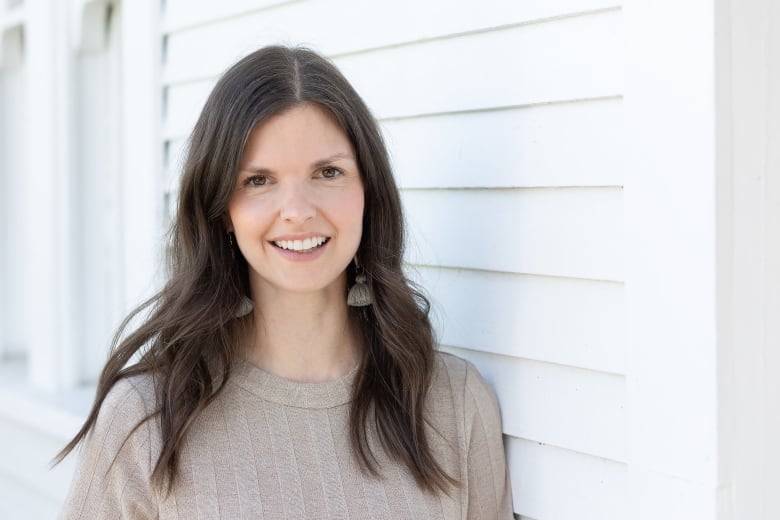Questions remain about B.C.'s IVF funding plan
Concern over lack of specifics after province announced it would fund one round of treatment

British Columbia is joining seven provinces in paying for some of the cost of in vitro fertilization, but scant details and long-standing inequities have raised questions about how the plan could benefit patients.
While some applauded the move, expected to begin in April 2025, others in the field were wary of the lack of specifics around what aspects of the treatment would be covered.
IVFinvolves hormone injections to stimulate production of multiple eggs to boost the chance of pregnancy.The eggs are removed from the ovaries and fertilized with sperm in a lab. One or more of the resulting embryos are transferred to the uterus a few days later and pregnancy is determined by a blood test after about two weeks.
Here's a look at the hopes, concerns and reality of those who receiveIVFor advocate for public funding.
Few details
B.C. plans to convene an expert clinical group to help create the program and provide $68 million in funding for two years.
Finance Minister Katrine Conroy said last week that "one round ofIVFwill be available for free" but provided no details.
The process of undergoingIVFincludes multiple procedures and an array of medical and non-medical costs.
Medications alone can run to thousands of dollars and are not included in most programs across the country. Rural patients face added travel expenses for regular visits to clinics in major centres.
Which provinces offer coverage?
B.C.'s announcement leaves Alberta, Saskatchewan andthe territories as the only jurisdictions without IVFfunding or plans to provide coverage.
Carolynn Dub, executive director of Family Matters Canada, said one cycle ofIVFcosts an average of $20,000. She describedfunding schemes across the country as a "hodgepodge" and urgedB.C. to seek advice from all stakeholders including patients, advocates and clinicians to understand what has worked elsewhere.
"We're asking the provincial governments, the federal government and insurance carriers to all take a piece of the pie," said Dub, adding it'sparticularly important asbirth rates decline.
Among provinces that do offer coverage, eligible costs vary widely in some cases only treatment costs are covered while medications and other services must be paid out of pocket.
Manitoba and Nova Scotia, for example, also offer a tax credit for legal fees for those using donated eggs, embryos or sperm. Patients can submit receipts for up to $20,000 for all the services to recoup $8,000 per year.
In Ontario, coverage is limited to women below the age of 43 and is restricted to one cycle ofIVF. It does not include medications.Advocates there want a tax credit for subsequent cycles and travel grants for those who live far from major centres, Dub said.
Prince Edward Island does not have anIVFclinic but offers up to $10,000 in eligible expenses based on family income fortreatment elsewhere, while Quebec fundsboth treatment and medication.

Michelle Chidley of Fertility Alberta said B.C.'s announcement has bolstered her efforts to push her province to fundIVF.
"I personally believe that access toIVFshould not be a privilege for those who can afford it," said Chidley, who launched the group last June after working with a charity to raise money for families needing fertility treatment.
Long wait for treatment
In Ontario, waitlists at publicly funded clinics can last a year and a half, said Dub, who had three sons after undergoing two cycles ofIVFand five embryo transfers.
"And you can be on several waitlists at different clinics. It's wildly stressful. And people age out because they wait so long,"she said of the coverage, introduced in 2015.
Holly Yager, a reproductive and fertility counsellor in Vancouver,said the wait forIVFat some clinics, particularly in Ontario, has meant some patients travel to British Columbia.
"At one point during the pandemic I remember someone saying it was a two-year wait for the funded treatment in Ontario.
"Here in B.C., we already have long wait times. So that is a concern for me. I don't know how the clinics are going to manage because they're already very busy."
1 round not enough
Success rates are low for one round ofIVF.
For every embryo transfer, a little less than 32 per cent of people under 35 give birth per embryo transfer, according to 2021 data from the Canadian Fertility and Andrology Society.
That number dips to about 27 per cent for those between 35 and 39 and almost 22 per cent for patients older than 40.
Cayley Benjamin of Vancouver said she and her husband paid $30,000 for one round because of "add-ons" including genetic testing. They delayed their plans to buy a house to pay for the procedure.
"Fortunately for us, I was able to get pregnant following our first round ofIVF, and I'm 21 weeks pregnant," said Benjamin, 38, adding she "burst into tears" when she heard B.C. would start funding part of the procedure.
"I feel such an affinity to others who are on a fertility journey to have children, and I just feel very emotional about it and am really celebrating."
Paying up front
Dub saidIVFwould remainout of reach for many people under a provincial funding plan because they still have to pay out of pocket before recouping expenses.
"They think, 'I can't get a line of credit, can't remortgage my house and my parents can't give me the money so I can't do it,'" she said.
Benjamin wants B.C. to fund the program upfront.

"I know a lot of people for whomIVFisn't an option because of finances," she said.
"Imagine going to pay for your medicationsand the bill is $2,000," she said of just a single purchase of her medications, which eventually totalled $5,000.
"So few benefitplans coverIVFtreatment or medications and there are a lot rules and maximums and limitations around it.
"We didn't have any coverage through our health benefits plan and those costs came out of pocket, which is the case for so many people."
Hidden costs
A report published last year by the World Health Organization said one in six people is affected by infertility, resulting in significant mental health challenges due to stigma and "catastrophic" costs.
It called for better policies and public financing to improve access to treatment.
Women who undergo multiple failed rounds ofIVFendure trauma, loss and "disenfranchised grief" that is not talked about but affects every aspect of their lives, requiring significant investment in mental health services for those struggling to conceive, Yager said.
Male infertility is an even more under-recognized issue and deserves attention, she added.
Canada's fertility rate fell to its lowest ever in 2022, when it was just 1.33 children per woman, according to a Statistics Canada report released in January.
B.C.had a rate of 1.11 children, the lowest in the country.
Canadian Press health coverage receives support through a partnership with the Canadian Medical Association. CP is solely responsible for this content.
















_(720p).jpg)


 OFFICIAL HD MUSIC VIDEO.jpg)
.jpg)



























































































